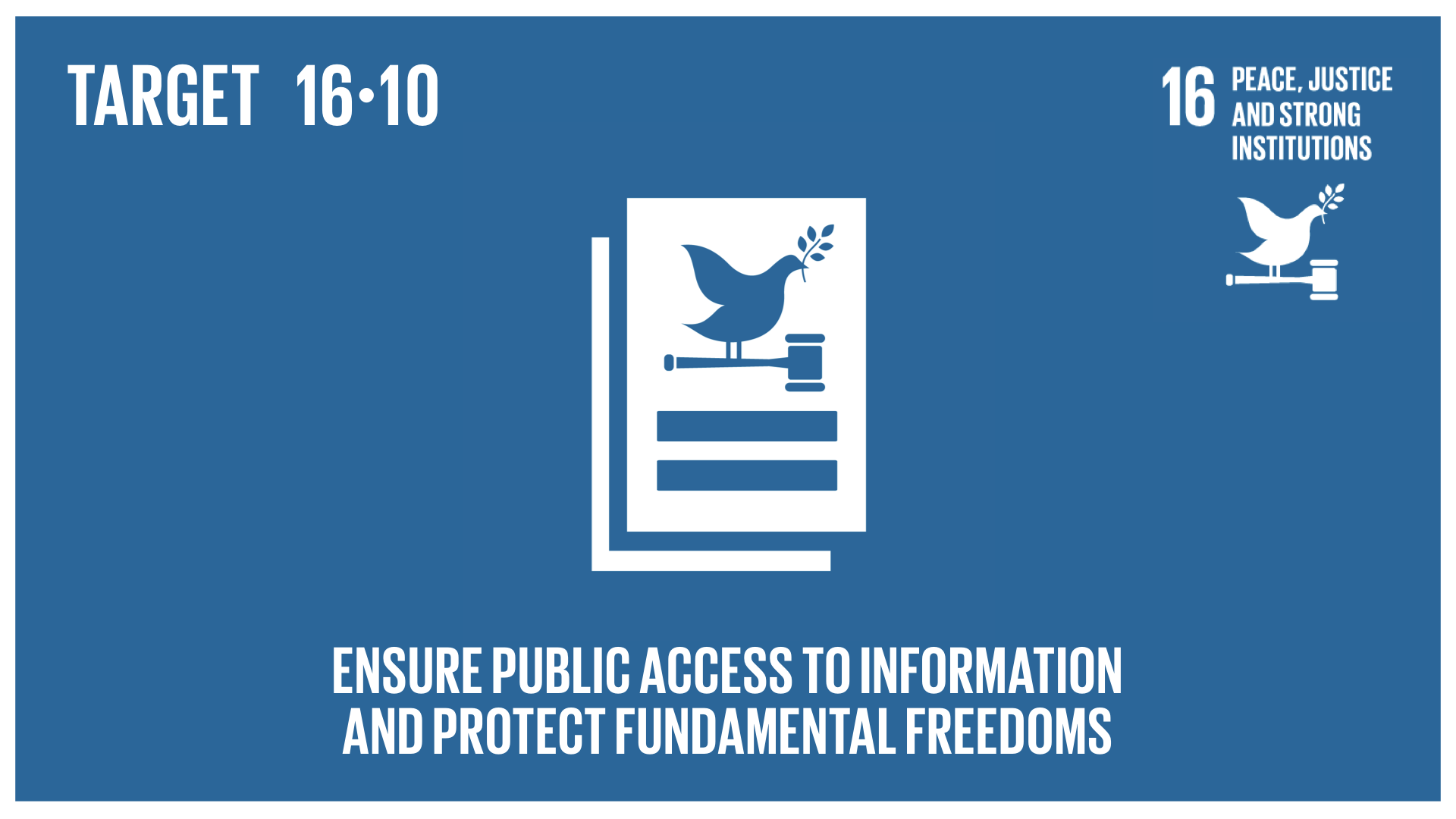The Fundamental Freedoms of Association, Assembly and Expression
Fundamental freedoms are critical guarantees for exercising, defending and promoting rights. They include the freedoms of association, assembly, and opinion and expression.
It is through these freedoms that human rights defenders can share ideas, form new ones, and join with others to promote and defend human rights. Human rights defenders need to be able to exercise their right to join, form, and operate associations without illegitimate restrictions. They should be able
to freely express their opinions, enjoy their right of access to information held
by public authorities, and should be protected when disclosing public interest information essential for the promotion and protection of human rights. Human rights defenders, as all individuals, should be able to peacefully assemble, whether it is offline or online.
The 2030 Agenda emphasizes a State’s responsibility “to respect, protect and promote human rights and fundamental freedoms for all, without distinction of any kind as to race, colour, sex, language, religion, political or other opinion, national
or social origin, property, birth, disability or other status” (p.6). To achieve this, it includes, among others, a Sustainable Development Goal (SDG) 16.10 that aims to ensure public access to information and protect fundamental freedoms, in accordance with national legislation and international agreements.
Fundamental freedoms are integral to the realization of sustainable development. They are a cornerstone for free and effective civic participation and engagement in public life, including in sustainable development processes. The 2030 Agenda is built on the principles of inclusion and participation, and as such it cannot be achieved if people lack the knowledge of and the freedom to engage with and defend the global goals. Without the protection of these freedoms, human rights defenders would be severely restricted in their ability to fulfil their legitimate role.
The United Nations Declaration on Human Rights Defenders (UN DHRD) provides the most comprehensive framework available for the support and protection of human rights defenders within the context of their work. Implementation of the Declaration is considered a “precondition for the creation of an enabling environment” for human rights defenders to carry out their work safely and effectively. The entire Declaration therefore underpins and provides guidance for the adequate implementation of SDG 16.10.
In a mutually reinforcing manner, the integrated implementation of the Declaration and of the SDGs will contribute to other SDG targets related to non-discrimination, human rights education, labour rights, peace, justice, strong institutions, inclusion, and participation. The implementation of related SDG targets, in accordance with the rights incorporated in the Declaration, will strengthen the enabling environment for the work of human rights defenders.
MONITORING THE ENABLING ENVIRONMENT FOR HUMAN RIGHTS DEFENDERS
SDG 16.10 is central to and closely linked to the monitoring of the enabling environment for human rights defenders, not least in view of its global indicator 16.10.1. This indicator measures “verified cases of killing, kidnapping, enforced disappearance, arbitrary detention and torture of journalists, associated media personnel, trade unionists, and human rights advocates in the previous 12 months” . It is an important indicator to address the ultimate result, namely the reduction of the most serious violations and abuses against human rights defenders. However, these types of indicators (known as outcome indicators) are often slow moving and fail to measure the more structural, procedural and administrative measures that need to be in place to secure a safe operational environment for human rights defenders.
- Structural indicators: measure states’ commitment to human rights, as reflected in, for example, the ratification of international treaties or the adoption of national laws and policies.
- Process indicators: measuring states’ efforts to transform human rights commitments into results, for example, through budget allocations, establishment of institutions, training of personnel etc.
- Outcome indicators: measuring the actual results or impact of states’ commit- ments and efforts in terms of the populations enjoyment of human rights.
The Office of the High Commissioner for Human Rights (OHCHR) has a methodology for the development of human rights indicators which can support a more comprehensive monitoring of the enabling environment for human rights defenders under the 2030 Agenda. This methodology can assist in the development of complementary indicators, particularly at the national level, to directly measure states’ commitments and efforts in this regard.
At the time of writing this paper, the Danish Institute for Human Rights is collaborating with more than 20 organizations and institutions to develop a comprehensive monitoring framework and online tool for data collection on the so-called “right to defend rights”. The OHCHR methodology is being used to develop an indicator framework to complement the monitoring of SDG 16.10 and the fundamental freedoms at national level. The Declaration on Human Rights Defenders and the links showcased in this study are the basis for this work.

